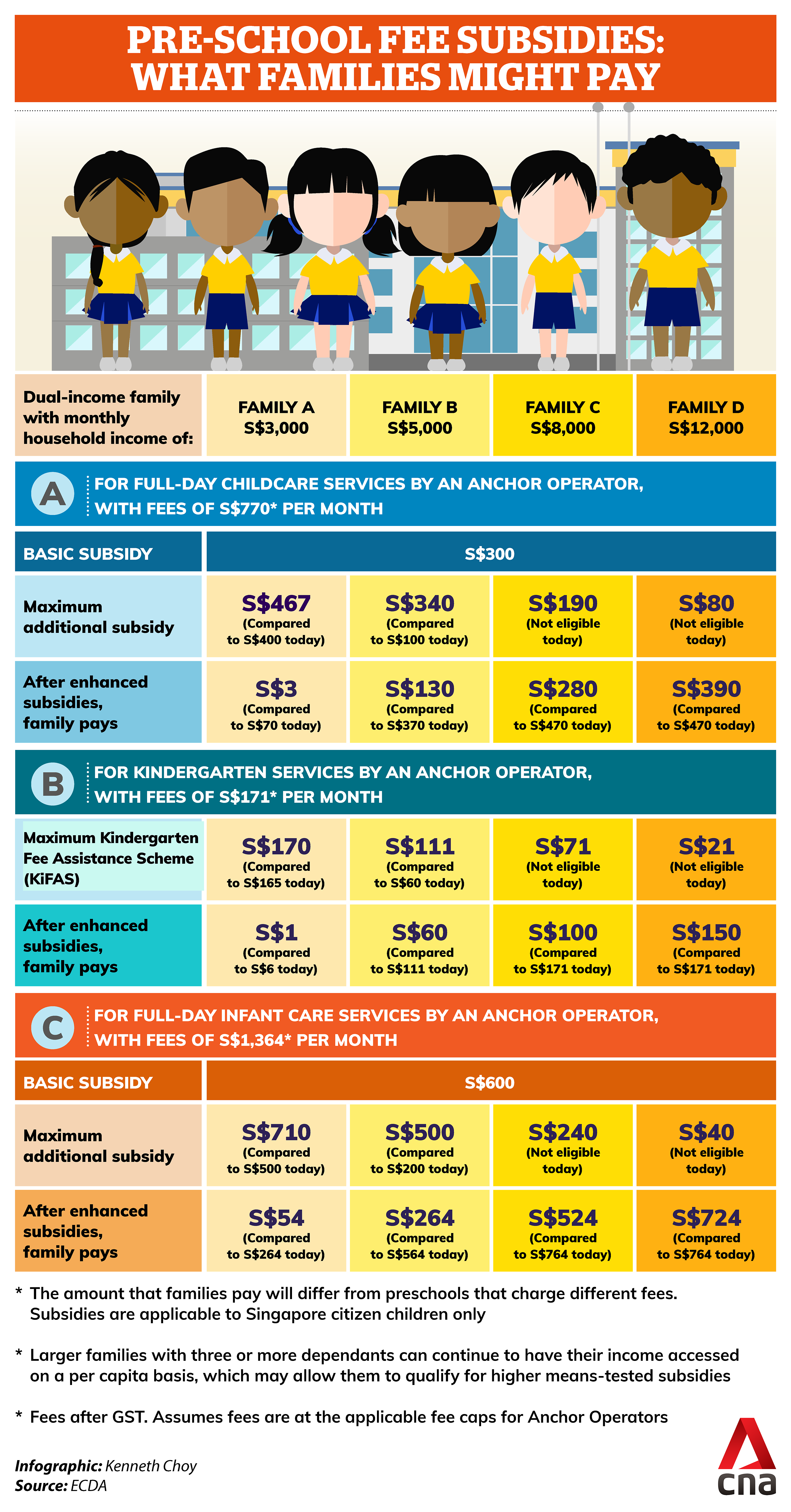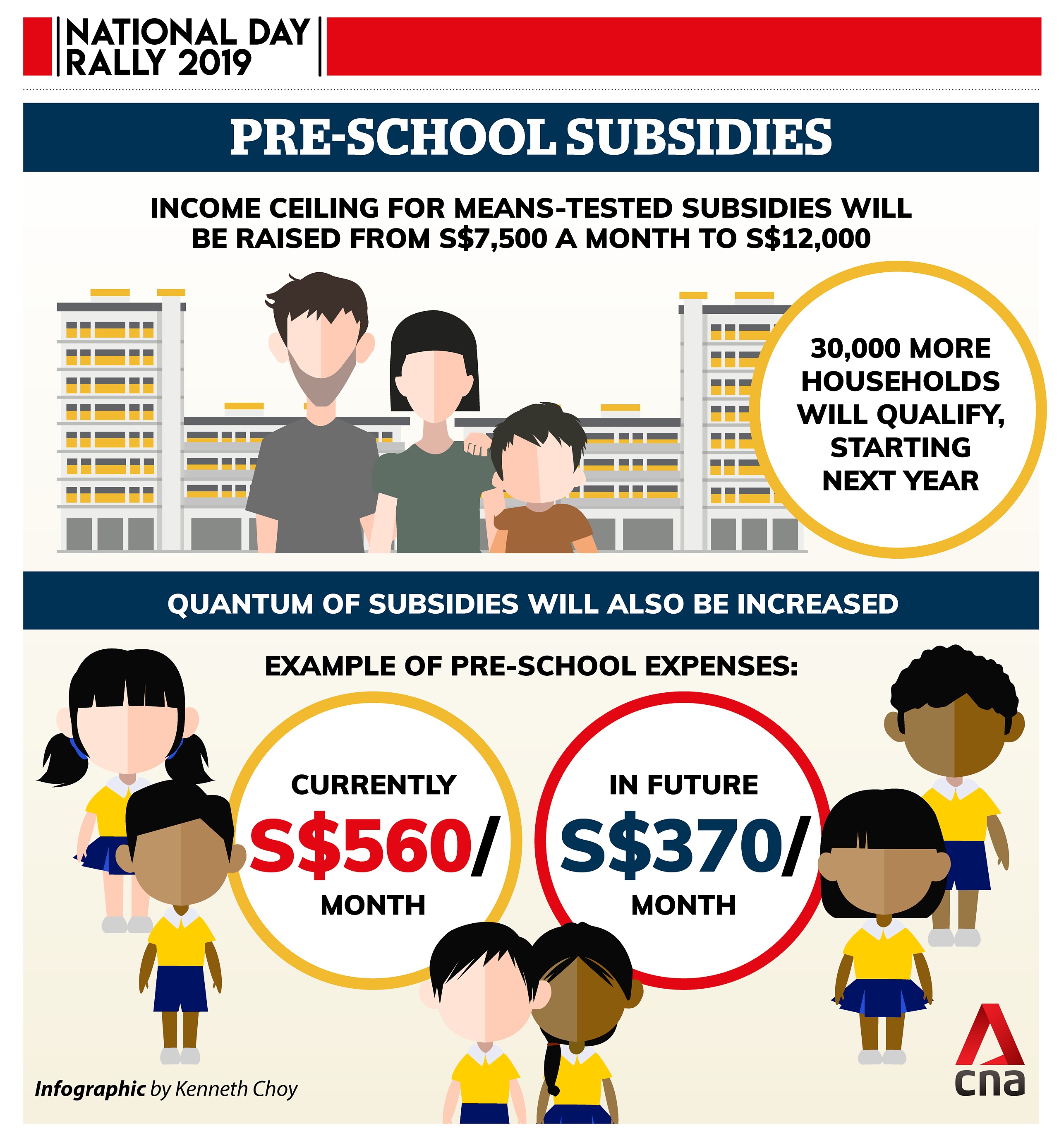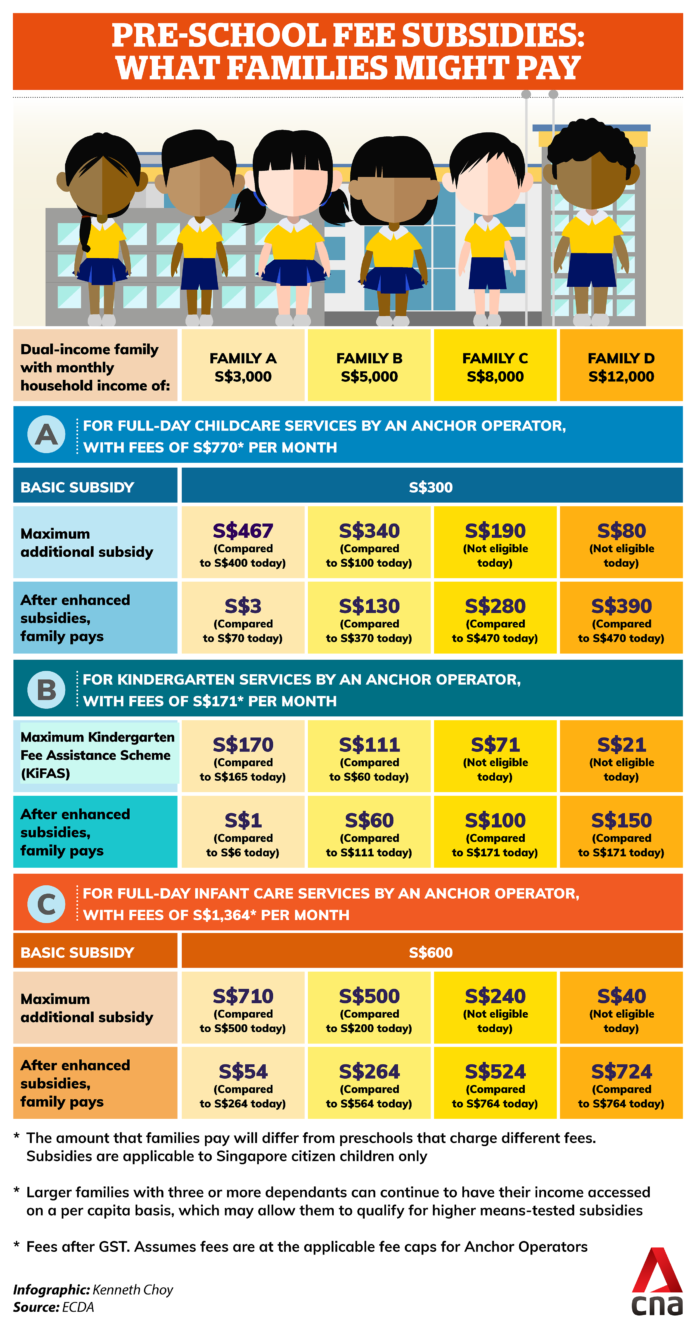SINGAPORE: Parents can look forward to paying less for pre-school from January 2020, as subsidy amounts will be increased across all eligible income tiers, announced Minister for Manpower Josephine Teo on Wednesday (Aug 28).
The increased subsidies were announced as part of measures to support marriage and parenthood.
READ: All childhood vaccinations to be subsidised at polyclinics and CHAS GPs by end of 2020
READ: Singapore to remove age limit for IVF treatments, introduce new subsidies
Under the new scheme, families with a gross monthly income of S$3,000 will pay S$3 a month per child at anchor operator pre-schools, as the maximum additional subsidy will be increased from S$400 to S$467.
This is on top of the S$300 basic subsidy.
Today, families with a gross monthly income of S$3,000 pay about S$70 a month per child at anchor operator pre-schools.
Families with a gross monthly income of S$5,000 qualify for a maximum additional subsidy of S$340 – an increase of S$240.
READ: NDR 2019: More pre-school subsidies as Singapore set to spend more on early childhood education
READ: More support in pre-schools for children with developmental needs
Those with a gross monthly income above S$5,000, who are currently not eligible for the additional subsidy, will also qualify.
Families with a gross monthly income of S$8,000, will be eligible for a maximum additional subsidy of S$190.
And for those with a gross monthly income of S$12,000. they qualify for a maximum additional subsidy of S$80.

Mrs Teo said pre-school education is “prominent” on the minds of Singaporean parents.
“All of us would like our children to do well. We want to provide as best as possible for the children, that’s number one.”
She also stressed the growing importance of full-day childcare services for working parents, and improving the affordability and accessibility of such services.
Those who are still unable to pay can apply for further financial assistance, said Minister for Social and Family Development Desmond Lee.
“For instance, start-up grants are available to defray the initial costs of enrolling in pre-school, such as uniforms and deposit.”
READ: Why it’s still so hard to have more early childhood educators in Singapore
READ: Too scared for pre-school: A young mum’s struggle with her daughter’s fears
In his National Day Rally speech, Prime Minister Lee Hsien Loong announced that Singapore’s annual spending of about S$1 billion on early childhood education will “more than double” over the next few years, as the Government looks to make pre-schools more affordable.
He also announced that the gross monthly household income ceiling will be raised to S$12,000, up from S$7,500 for additional subsidy and S$6,000 for the Kindergarten Fee Assistance Scheme (KiFAS).
This will extend the means-tested subsidies to 30,000 more households, or over 60 per cent of households in Singapore.

Mr Desmond Lee also announced that ECDA will expand the partner operator scheme for childcare operators and a small number of quality kindergartens in 2021, as the current term for partner operator centres ends in 2020.
The fee cap for childcare partner operators will also be slightly lowered from January 2021. The current fee cap for full-day childcare partner operators is S$856 after GST.
“Kindergartens that join as partner operators will have to meet conditions to ensure accessibility, quality and affordability for all segments of the public.”
There are currently five anchor operators and 23 partner operators. As of August, they manage a total of 822 infant care centres, childcare centres and kindergartens.
Mr Desmond Lee also said the Government aims to lower fee caps at government-supported pre-schools to around S$300 per month “in the medium term”, to match that of primary school fees plus after-school student care fees.
“Lower- to middle-income working families will continue to receive more help, and pay even less with means-tested preschool subsidies.”
He added that 80 per cent of pre-schoolers will have a place in government-supported pre-schools by 2025. This includes anchor operators, partner operators and MOE-run kindergartens, which account for just over 50 per cent of pre-school places today.
More anchor operator pre-schools will be built in areas of demand, especially estates with young families, he added, and void deck space will continue to be set aside for pre-schools.
“By ensuring access to affordable, good quality preschool, we will give every child a good start in life, regardless of their background,” said Mr Desmond Lee.
“With these enhancements, we hope to reduce concerns about the cost of putting children through preschool,and that working parents will have greater peace of mind knowing they are supported in their parenthood journey.”





